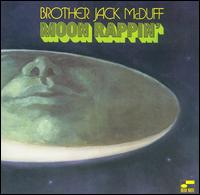| Who Knows What Tomorrow's Gonna Bring? | ||||
|---|---|---|---|---|
 | ||||
| Studio album by | ||||
| Released | 1970 | |||
| Recorded | December 1–3, 1970 | |||
| Genre | Jazz | |||
| Label | Blue Note | |||
| Producer | Lew Futterman | |||
| Brother Jack McDuff chronology | ||||
| ||||
Who Knows What Tomorrow's Gonna Bring? is an album by American organist Brother Jack McDuff recorded in 1970 and released on the Blue Note label. [1]

Eugene McDuff, known professionally as "Brother" Jack McDuff or "Captain" Jack McDuff, was an American jazz organist and organ trio bandleader who was most prominent during the hard bop and soul jazz era of the 1960s, often performing with an organ trio. He is also credited with giving guitarist George Benson his first break.

Blue Note Records is an American jazz record label that is owned by Universal Music Group and operated with Decca Records. Established in 1939 by Alfred Lion and Max Margulis, it derives its name from the blue notes of jazz and the blues. Originally dedicated to recording traditional jazz and small group swing, from 1947 the label began to switch its attention to modern jazz. Although the original company did not record many of the pioneers of bebop, significant exceptions are Thelonious Monk, Fats Navarro and Bud Powell.



